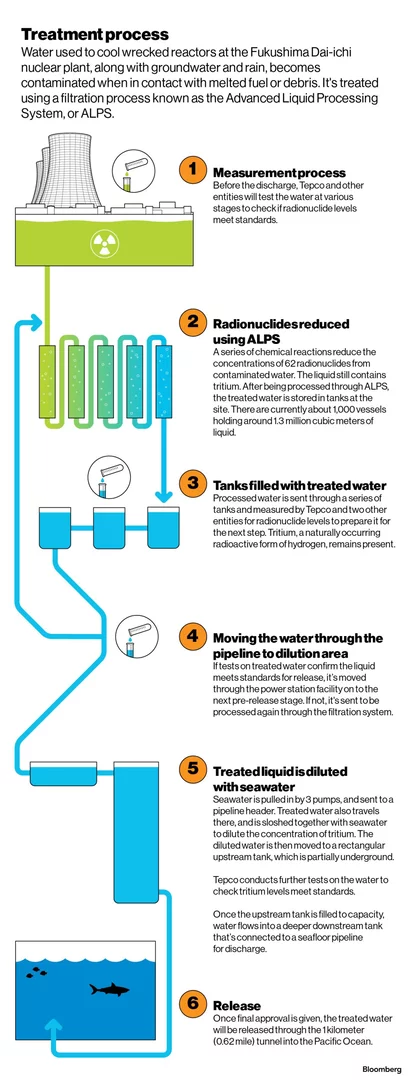Right now, it feels as though everyone is talking about egg freezing. I know of four different cis women who have gone through the egg retrieval process since February this year, which is four more women than I had ever known to do it.
Perhaps this is because insurance coverage for fertility treatments has expanded to include the process. You might look into freezing your eggs for personal reasons like prioritizing your career before becoming a parent or waiting until you are financially secure enough to raise a child. For others, it’s a way to assert bodily autonomy in a political atmosphere that seems determined to eradicate any control we have over personal choice. At least, that’s why I did it. (As well as having the privilege of access.)
The one thing I’ve learned since undergoing the egg retrieval process is that not one experience is the same. There are more unanswered than answered questions about egg freezing, not to mention a lot of conflicting information. Personally, I was concerned about whether or not my birth control implant would interfere with the egg freezing and if I’d have to get it removed before the procedure. (The answer is no, by the way.)
There were other queries I had, too. As Refinery29’s senior beauty writer, I’m always thinking about my skin and the changes it undergoes. But when I googled ‘Does egg freezing affect your skin?’ the results were few and far between. Information that did exist was confusing, but if we know anything about hormones (which are prescribed to stimulate the ovaries into producing eggs during the freezing process) it’s that they can play havoc with our skin. Acne, melasma and excessive facial hair have all been linked to hormones, for example. During my own egg freezing cycle, I had a lot of thoughts about the changes that my skin went through, so I asked some experts to help me explain exactly what might happen during a procedure like this.
What happens when you freeze your eggs?
Firstly, let’s break down what the egg freezing process looks like. It typically involves a 14 day cycle of twice-daily hormonal injections into the tissue of your abdomen or upper thigh. These injections contain the hormones estrogen and progesterone, as well as follicle-stimulating hormone (FSH), luteinizing hormone (LH), which controls your menstrual cycle, and human chorionic gonadotropin (HCG), often referred to as the pregnancy hormone. All of this helps to stimulate the eggs to mature so that they can be retrieved, stored, and frozen for future use. This surge of hormones is much higher than your body is used to dealing with during a natural menstrual cycle or even pregnancy, which can sometimes make skin go temporarily haywire. This is because your body is undergoing inflammation and over stimulation from the high levels of hormones. For many women, this results in acne, sensitivity, redness, rosacea, and eczema to pinpoint a few skin issues.
But it’s not like that all the time. The medications used for egg freezing are similar to hormones naturally made to recruit and mature an egg each month when not on hormonal contraception, like the birth control pill. The two hormones that dominate the menstrual cycle are estrogen and progesterone, which Jaime M. Knopman, M.D, board-certified reproductive endocrinologist and a member of Veracity advisory board, refers to as “good cop” and “bad cop” respectively.
“While you need both, one makes you feel good and one makes you feel bad,” says Dr. Knopman. “The estrogen will make your skin glow, hair grow and [make you] feel energized; progesterone is what causes bloating, acne, and weight gain.” Usually, most of the skin gripes (like acne) occur after the egg retrieval is completed but before the menstrual cycle begins, when progesterone levels dominate. It makes sense: In the first half of our menstrual cycle, estrogen tends to be more dominant, which is when many people typically report clearer skin.
What happens to your skin during egg freezing?
I tried to prepare properly for the whole cycle. I loaded up my fridge with fruits and vegetables, I committed to a solid vitamin routine, and I drank water nearly constantly. But I am no match for a rush of hormones. As an already highly emotional person (I have two dominant water sign placements, okay?) I was concerned about being thrust into a hormone-induced depressive period, primarily. I learned a lot about myself and what I’m physically capable of.
The first time I did my subcutaneous injections was full of trials and tribulations — and lots of screaming. As mentioned, the actual process of egg freezing involves twice-daily injections of two differing types of medication into your lower stomach or upper thigh with a tiny needle. Basically, you’re your own doctor. It gets easier, but the first time injecting Menopur, which is a powder and a liquid you have to mix together yourself in very specific increments, confirmed I was right not to go to medical school. (But bless those who do.)
Really, the biggest issue I had was how exhausted I was all the time and that showed up on my skin. Sometimes before a big event, I find myself unable to sleep restfully — like my body never enters REM, and then the next day my skin always has a weird pallor to it. Not quite like the white cast from sunscreen, but as though I’ve inhaled a ghost somehow. Throughout my egg freezing process, my skin was so dull and tired, and my smile never really reached my eyes, even if it was genuine.
Not to brag, but I’ve been very lucky with my skin for most of my life. I’ve never really had an issue with acne save for a few zits here or there, despite a family history of acne. I convinced myself that I would experience the acne I didn’t have as a kid once a heavy dose of hormones had been introduced into my system. But for the nine days of hormone injections, my skin looked… great. Bright and glowy. During the injections, I met with makeup artist Katie Jane Hughes to try out the new Glossier Stretch Fluid Foundation, and when she told me that my skin looked amazing, I couldn’t help but say, “Thanks! It’s the hormones.” It was true: Everything I usually did to maintain a great glow, I either had to stop doing, such as using retinol) or doing my makeup, as I was far too tired.
Inside, ya girl was exhausted. I was sleeping more than ever and my face looked like Paul Rudd was slowly harvesting me for my youthful energy. The hormones made me feel older. Though I had avoided the breakouts, I know this isn’t the case for plenty of other women. After the eggs are removed during the egg retrieval procedure, the follicle where each egg grows switches to predominantly making progesterone over estrogen. Increased progesterone levels can kickstart sebum production and cause clogged pores. Most people may not notice a difference, but those prone to hormonal acne are often advised to pay attention to their skincare routine, diet, and hydration levels after egg retrieval to avoid and minimize breakouts. About seven to 14 days after retrieval, the progesterone levels tend to plummet, you’ll get your period, and following that, your skin should return to baseline.
My retrieval was successful, if not a little faster than expected. I blame Beyoncé for putting on a show so good on the New York leg of her Renaissance World Tour that my eggs wanted to attend, too. But that same zapped energy persisted. When my period arrived, I expected everything to go back to normal — but it didn’t.
Throughout this time, my face was so sensitive — and sensitive in a way where even a mild gust of wind felt like knives. I had to soak it in moisturizer, it was so dry. “One side effect of hormonal medication is skin sensitivity, which can manifest as rashes or dry, red skin,” confirms board-certified dermatologist Dr. Dendy Engelman, MD, FACMS, FAAD. Like Dr. Knopman, she recommends packing on a broad-spectrum SPF of at least factor 30 every day to prevent sun damage and hyperpigmentation.
Dr. Tia Jackson-Bey, board certified reproductive endocrinology and infertility (REI) and obstetrician-gynecologist at RMA of New York (who did my egg retrieval), explains that the skin dryness is a common side effect of the medication, which dehydrates not only your skin, but basically your entire body. I was so thirsty all the time, and not in the way I normally am (like in Instagram comment sections). Dr. Engleman adds that the medications used can cause inflammation, itchiness and hives in individuals, as well as hyperpigmentation and dark spots. “These side effects typically go away when an individual goes off of treatment. If you have preexisting skin conditions, such as eczema and psoriasis, you may potentially experience a flare-up in some cases,” she says.
On the last day of my period, I was convinced everything was going well, but then a large, unrelenting pimple emerged right in the center of my forehead. These kinds of stress pimples usually occur in week or two after your egg retrieval. “About seven to 14 days after retrieval, the progesterone levels plummet,” explains Dr. Jackson-Bey. “Increased progesterone levels can increase sebum production and cause clogged pores.” The pimple arrived on day 14 of my cycle, and three weeks later, it still hasn’t left. I’m about to start charging it rent. No Hero Cosmetics Mighty Patch or INNBeauty Project Pimple Paste can defeat this honker — and trust me, I’ve tried.
Should you change your skincare routine when freezing your eggs?
Just like being pregnant, you’re advised to be cautious of skincare ingredients that might interfere with pregnancy during the egg freezing process, such as retinol. Others, like exfoliating salicylic acid and fragrance could potentially disrupt the balance or exacerbate sensitivity in the skin, explains Dr. Knopman. It’s also likely that you will have to discontinue oral medications for skin health such as spironolactone, Accutane, or antibiotics. “The largest culprit in acne during egg freezing is stopping medications that may have controlled acne — like birth control pills and spironolactone — medications that cannot be continued during the egg freezing cycle,” explains Dr. Jackson-Bey.
Dr. Knopman encourages maintaining your sunscreen routine in particular. “We are more sensitive to the sun due to hormonal changes and are not only more likely to burn but can develop melasma. Some antibiotics that are given during the transfer process can also cause sun sensitivity,” she points out. It is advisable to consult both your dermatologist and your OBGYN for anything concerning.
Overall, if the worst part of my egg freezing procedure is a nasty pimple and needing a lot of sleep, I’d say that’s a pretty good deal. More than anything, I’m shocked by what didn’t happen to my skin. I prepared for an absolute overhaul of my skincare routine and for my skin to descend into chaos. Instead the biggest struggle I had was being — and looking — completely spent and tired. But my experience is just that: Mine — and everyone else’s will likely be very different.
At Refinery29, we’re here to help you navigate this overwhelming world of stuff. All of our market picks are independently selected and curated by the editorial team. If you buy something we link to on our site, Refinery29 may earn commission.









